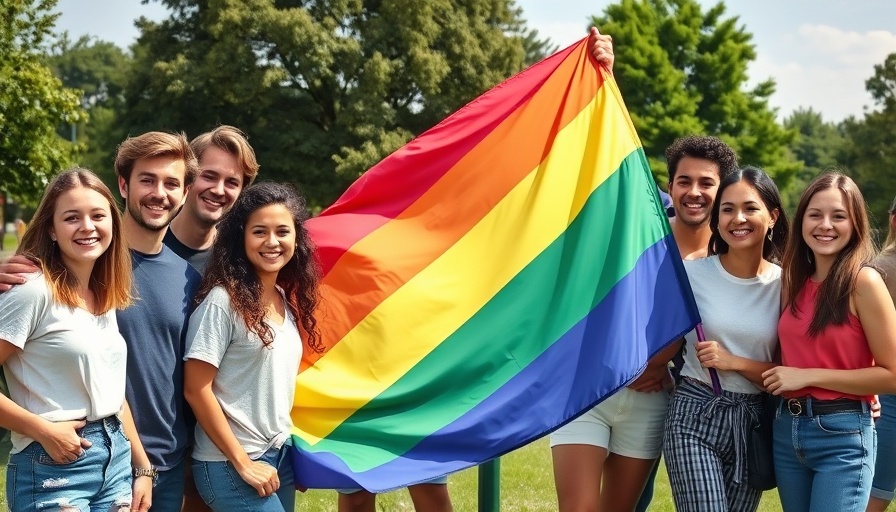
Supporting LGBTQ+ Youth Through Community Connection
As proud advocates for diversity and inclusivity, we recognize the challenges faced by LGBTQ+ youth in today's society. Supporting these bright individuals goes beyond mere acceptance; it's about creating a community that fosters open dialogue, education, and resilience. Each year, spiraling rates of substance abuse and mental health issues indicate the urgent need for parents and caregivers to engage with their LGBTQ+ youth, assisting them in navigating their unique challenges and fears.
The Importance of Recognizing Vulnerabilities
Many LGBTQ+ youth experience a range of vulnerabilities stemming from bullying, societal rejection, and family disapproval. According to research, these experiences increase the likelihood of substance use as a coping mechanism. Just like any vulnerable group, they are at higher risk for addiction and substance abuse. Alcohol rehab centers and outpatient treatment programs dedicated to youth can provide tailored support, often integrating cognitive-behavioral therapy and addiction counseling to equip them with essential coping skills.
Encouraging Healthy Lifestyles and Substance Abuse Prevention
Promoting healthy lifestyles plays a critical role in preventing substance abuse among LGBTQ+ youth. Parents should engage in open conversations regarding the pressures their children may face. Programs that include addiction education and family therapy for addiction can help forge strong relationships based on trust and understanding. Engaging in activities such as sober living events and support groups, including Alcoholics Anonymous or Narcotics Anonymous, can provide positive environments for LGBTQ+ youth to relate and flourish.
Tools for Action: Resources and Support Systems
Creating supportive environments means introducing local communities to valuable recovery resources. Numerous addiction support groups focus on the unique experiences of LGBTQ+ members, offering mentorship and peer support that often resonate. Additionally, utilizing addiction recovery apps or podcasts can offer relatable content that empowers youth. A community with support services that include addiction recovery workshops and peer mentoring is indispensable, allowing youth to share their stories in a safe space.
The Role of Parents in Supporting LGBTQ+ Youth
As parents, it is crucial to foster an understanding and supportive atmosphere at home. Familiarizing ourselves with the challenges faced by LGBTQ+ youth can empower both parents and children. Parents who actively engage with their children's experiences often observe better emotional health and relationship dynamics. Resources such as motivational interviewing can improve communication, paving the way for open conversations about mental health and lifestyle choices.
Action Steps for Parents: Building Resilience
To support LGBTQ+ youth effectively, parents should explore multiple avenues, such as addiction prevention workshops, engaging in educational programs, and considering dual diagnosis treatment options for youth who might also face co-occurring disorders. Developing coping skills through recreational activities like sports and creative arts can spark joy and resilience among youth experiencing stressful emotions. Additionally, reinforcing the importance of mental health by seeking professional counseling can bridge the gap toward healthier, substance-free lifestyles.
Creating a Sustainable Impact in Our Communities
Communities play a key role in providing a safe environment where LGBTQ+ youth can thrive free from the fear of prejudice and discrimination. Collective efforts towards advocacy can lead to systemic change, reducing the stigma attached to seeking help for substance abuse. By amplifying resources available and engaging with local organizations to support youth-centric programs, we collectively empower them towards positive futures.
Join the Effort to Support LGBTQ+ Youth
In conclusion, supporting LGBTQ+ youth requires collaboration, advocacy, and open communication within families and communities. By leveraging available resources such as addiction recovery programs, we can initiate conversations that matter and create safe spaces where these youth can be themselves without fear. Remember, every effort counts, and together, we can make a significant difference.
 Add Row
Add Row  Add
Add 




 Add Row
Add Row  Add
Add
Write A Comment